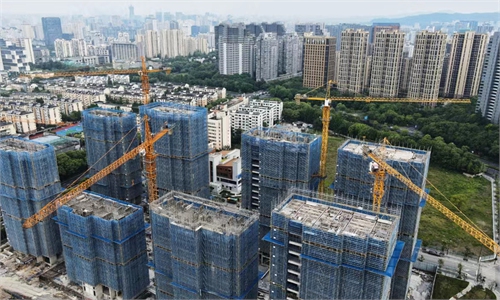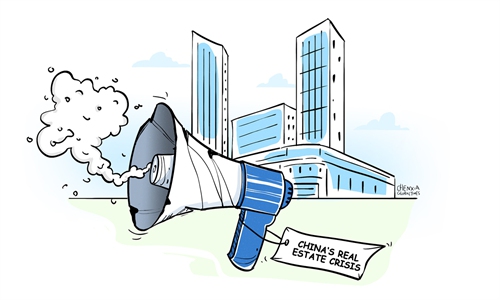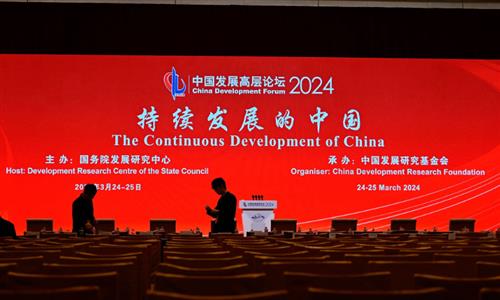
Illustration: Chen Xia/GT
China's pre-owned secondary homes market showed positive signs of recovery in June, as their sales in some major cities rose to a 14-month high, thanks to the government's ramped-up policy support to reactivate the real estate market. The average home price in the 100 monitored cities edged up 0.05 percent last month from May, snapping a nine-month decline streak - an indication that property prices are stabilizing, according to Reuters.
In the past two years, China's central bank has moved to reduce mortgage rates and trim down payments to propel home sales. The monetary policy easing, coupled with many local governments' move to spur home buying by scrapping home purchase restrictions, cutting taxes or offering cash subsidies, will likely continue to provide firm support for the revival of the real estate industry.
According to information compiled by Zhuge Real Estate Data Research Center, transactions of pre-owned homes in 14 tracked Chinese cities rose 27.9 percent year-on-year to a total of 119,470 units in June, hitting the highest point since May 2023. However, new home sales have remained lackluster as home-buyers are still worried about embattled developers' ability to finish housing construction and deliver homes on time.
Shenzhen, Beijing and Shanghai all witnessed rebounds in the secondary home market in June. In Shanghai, 26,374 pre-owned homes changed hands last month, marking a 48.9-percent jump from May and a 114-percent increase from a year earlier. Beijing saw 14,987 pre-owned home transactions last month, an increase of nearly 30 percent year-on-year.
This development comes six weeks after China announced a historic rescue plan to support the sector's recovery, including a 300-billion yuan (US$42 billion) re-lending facility by the central bank to help local state-owned enterprises buy unsold homes from financially-troubled developers.
Real estate investment used to be the preferred savings instrument for Chinese middle-class households. But since 2021, in the aftermath of the pandemic, the real estate sector has entered a cycle of protracted correction, marked by declining home prices and plummeting home sales. As a result, some developers have run into financial trouble and defaulted, like Evergrande Group.
To put a solid floor on the real estate industry, the interventions aimed at stabilizing the industry and clearing the new homes inventory. Effective measures like removing prior administrative restrictions for homebuyers, reducing down payment thresholds, and lowering mortgage rates should go on.
The new policy on clearing inventory of new and old apartments should be the most powerful and effective means to stop property investment from further declining. When people's confidence in the sector starts to pick up, home selling prices will stabilize and market demand will increase.
The authorities have also worked out a "developer whitelist," with eligible developers on the list given easier access to bank loans, which will enable them to complete stalled housing projects and deliver them to homebuyers promptly. This measure should continue too.
Only after developers obtain normal cash flow from clearing their stockpile of homes and obtain normal credit from financial organizations will the public's confidence in the real estate sector start to build up and consolidate. June's average home price rise in the 100 cities from May is a good signal.
It is estimated that the government's package of supportive measures will lead to growing property sales in the second half this year, compared with a year earlier, which should provide a firm cushion for China's economic growth.
More heartening news is also on the way. The central government's special bond issuance started to accelerate from May, which will feed through to stronger infrastructure spending in the coming months, and the Caixin manufacturing PMI rose to 51.8 in June from 51.7 in May. The index, which mostly covers smaller, export-oriented firms, has remained above the 50-point mark that separates growth from contraction for eight straight months - a meaningful sign that China's economy has sustained the momentum of growth. All this will provide firm support for the public's confidence in the property market's revival.
The author is an editor with the Global Times. bizopinion@globaltimes.com.cn



